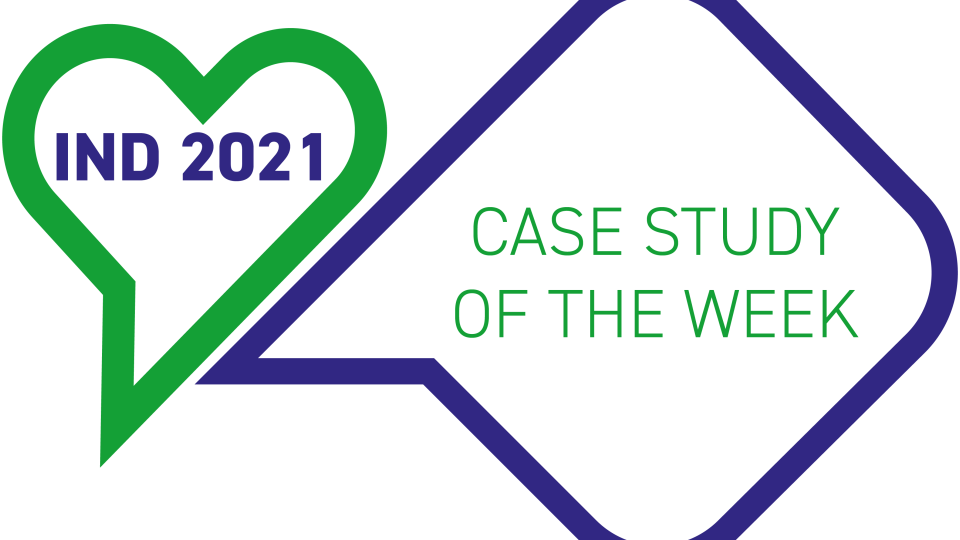Delivering Nursing Education during COVID-19, Qatar


The rapid onset of COVID-19 caused major and widespread disruptions to the delivery of healthcare all around the world. In Qatar, this resulted in the need for vital and rapid adaptations to services. In response to a call to action and to provide assurance of continued patient and staff safety, the Nursing and Midwifery Education Department of the Hamad Medical Corporation (HMC) - the largest government healthcare provider in Qatar - moved quickly and put in place exceptional interventions which addressed the significant impact on human, physical and service resources.
These interventions included the suspension of non COVID-19 related educational activities as well as a major overhaul of the education strategy to support the repurposing of healthcare workers and adaptation of services.
Most of HMC’s nurse educators were deployed to frontline duties to support COVID-19. However, a small team of nine nurse educators who remained in the department were given the task of designing and delivering the necessary education. This core team recognised that a rapid response to the pandemic was key. However, it was equally important to assess and confirm the clinical competence and safe practice of newly hired and deployed staff whilst also ensuring international guidance on social distancing and infection control was strictly followed.
A new approach to teaching and learning was adopted, in collaboration with IT colleagues. A suite of nine cohesive blended-learning educational programmes were launched to orient nurses and Patient Care Assistants and prepare them for deployment to new roles, including those in critical care settings.
Virtual learning activities, together with simulated practice, allowed for focused upskilling. During a time of extreme stress and uncertainty, exposure to practice through simulation was found to have a hugely powerful and positive impact on staff confidence and subsequently patient outcomes. It provided an opportunity for deployed staff not only to confirm their own fitness to practice in a safe environment, but also to explore their COVID-19 anxieties with peers and nurse educators. This proved to be an unexpected benefit of this new approach to teaching and learning.
Blended learning activities were followed up in clinical settings through the implementation of a structured “buddy” programme, which provided the opportunity for consolidation of knowledge and skills. Deployed staff were supervised by experienced nurse “buddies”, exposed to bedside practice and were able to demonstrate their competence to practice in the real clinical environment.
The first week of deployment focused on orientation and elements of essential nursing care such as patient assessment, pain management, medication management and infection prevention and control. During the second week, deployed staff were allocated to a nursing team where they cared for low acuity patients, supervised by experienced nurses. With gradual and continual supervision, feedback and support, deployed nurses and PCAs gained the confidence and competence to practice independently within their scope of practice, caring for more acutely ill patients (Almomani et al 2020).
As a result, between March and September 2020, HMC was able to redeploy over 3000 nurses from their regular duties and onboard 782 new staff. Of these, over 700 non-critical care nurses were upskilled for critical care deployment to newly commissioned COVID-19 facilities.
The success of this approach is reflected in the story of a nurse educator, Surekha Patil, who was deployed to a COVID-19 facility early in the pandemic:
“Initially, I was skeptical about my deployed role and the uncertainties which came with it,” said Surekha. “However, the Nursing and Midwifery Education Department played a key part in preparing me through educational activities with the necessary skills competence. These activities which included infection prevention and control were conducted to prepare nurse educators, who had been away from front line care, with the knowledge to deliver critical care in COVID areas.
‘Within six months of taking on my deployed role, I was given an opportunity to be assigned to several quarantine facilities where I cared for the varied population of Qatar. The many roles I played from bedside nurse, supervisor to acting Director of Nursing was a great learning curve and I gained immense knowledge. Every day was challenging as the processes and pathways were dynamic and we had to ensure each one of our patients was cared for in the best possible way. The infection prevention and control team fully supported us to maintain proper PPE techniques to keep us all safe and mitigate any risk of viral transmission.
‘I really appreciate HMC’s effort to keep front-line nurses motivated throughout with constant communication and updates. A positive mindset and self-motivation have kept me going during these tough times. I can proudly say I have contributed my best in ‘flattening the curve’ during the COVID-19 pandemic in Qatar.”
References
Almomani E, Sullivan J, Majed H et al (2020). Simulation based education programme for upskilling non-critical care nurses for COVID-19 deployment. BMJ Simulation Technology and Enhanced Learning.